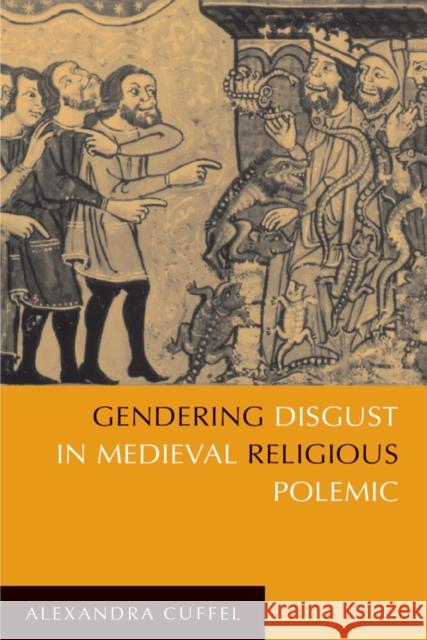Gendering Disgust in Medieval Religious Polemic » książka
Gendering Disgust in Medieval Religious Polemic
ISBN-13: 9780268023676 / Angielski / Miękka / 2007 / 448 str.
Gendering Disgust in Medieval Religious Polemic
ISBN-13: 9780268023676 / Angielski / Miękka / 2007 / 448 str.
(netto: 162,59 VAT: 5%)
Najniższa cena z 30 dni: 170,72
ok. 22 dni roboczych.
Darmowa dostawa!
In Gendering Disgust in Medieval Religious Polemic, Alexandra Cuffel analyzes medieval Jewish, Christian, and Muslim uses of gendered bodily imagery and metaphors of impurity in their visual and verbal polemic against one another. Drawing from a rich array of sources including medical texts, bestiaries, Muslim apocalyptic texts, midrash, biblical commentaries, kabbalistic literature, Hebrew liturgical poetry, and theological tracts from late antiquity to the mid-fourteenth century Cuffel examines attitudes toward the corporeal body and its relationship to divinity. She shows that these religious traditions shared notions of the human body as distasteful, with many believers viewing corporeality and communion with the divine as incompatible. In particular, she explores how authors from each religious tradition targeted the woman s body as antithetical to holiness.Foul smell, bodily fluids and states, and animals were employed by these religious communities as powerful tropes, which they used to mark their religious opponents as sinful, filthy, and unacceptable. By defining and denigrating the religious other, each group wielded bodily insult as a means of resistance, of inciting violence, and of creating community boundaries. Representations of impurity or filth designed to inspire revulsion served also to reassure audiences of their religious and sometimes physical superiority and to encourage oppressive measures toward the minority.Yet, even in the midst of opposing one another, their very polemic demonstrates that Jews, Christians, and Muslims held basic cultural assumptions and symbols in common while inflecting their meanings differently. AlexandraCuffel's bold study interprets the inter-religious polemic of medieval Jews, Christians and Muslims in the context of late-antique disgust for the body, especially the female body, shared by all three traditions. This will be a very influential book for medievalists in many fields. E. Ann Matter, University of Pennsylvania With Gendering Disgust in Medieval Religious Polemic, Alexandra Cuffel has produced a remarkably original, ambitious, and important book that sets the agenda for future discussions. Peter Biller, University of York Filth, putrid, excrement, foul, bloody discharge, stench, as these and other terms of physical and moral revulsion unfold Gendering Disgust grabs our attention and refuses to let go. Alexandra Cuffel offers her readers a riveting and enlightening comparative socio-religious study of the body s place in religious polemic from late antiquity and the early Middle Ages to the thirteenth century. It is a singularly engaging and disturbing study highlighting the polemical lexicon and registers shared by pagans, Jews, Christians, and Muslims. Ross Brann, Cornell University"











